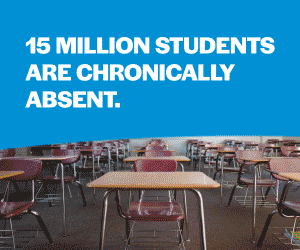 The Supreme Court on Tuesday took up a Maryland case in which parents argued that the Montgomery County Public Schools violated their religious freedom rights when it stopped letting them opt their children out of hearing storybooks with LGBTQ characters. (Becket)
The Supreme Court on Tuesday took up a Maryland case in which parents argued that the Montgomery County Public Schools violated their religious freedom rights when it stopped letting them opt their children out of hearing storybooks with LGBTQ characters. (Becket)
The U.S. Supreme Court on Tuesday appeared to lean in favor of parents who say Maryland’s largest district violated their religious freedom rights when it stopped letting them exempt their young children from lessons featuring books with LGBTQ characters.
In 2023, Montgomery County Public Schools ended an opt-out policy, prompting the parents, backed by religious freedom advocates, to take the district to court.
A federal appeals court agreed with the suburban Washington district’s argument that it didn’t coerce the students to change their beliefs about gender and sexuality simply by exposing them to stories with gay or transgender characters. But some conservative justices in Tuesday’s oral arguments agreed with the families, who say the books alone pose a burden on parents’ religious beliefs and the district clearly intends to “disrupt” students’ thinking about issues like same-sex marriage and whether someone can change their pronouns.
“What is the big deal about allowing them to opt out of this?” Justice Samuel Alito asked Alan Schoenfeld, who represents the school district. As an example of a “clear moral message,” he pointed to Uncle Bobby’s Wedding, a picture book focusing on a girl’s feelings of jealousy when her favorite uncle gets married to another man. “It doesn’t just say ‘Look, Uncle Bobby and Jamie are getting married.’ It expresses the idea [that] this is a good thing.”
Justice Ketanji Brown Jackson, however, warned that because the case is still at such an early stage — the parents just want to restore the opt-out policy for now — the court shouldn’t be making a decision that would force districts nationwide to adopt such policies for curriculum that could offend parents’ religious beliefs.
“Instead of having democratically elected representatives and experts in the field making the decision about which books should be taught to kids in the classroom, you have federal judges flipping through the picture books and deciding whether these are appropriate for 5 year olds,” she said. “It seems pretty troubling, because ordinarily, public education has been the subject of local control.”
‘Not a sea change’
The case, Mahmoud v. Taylor, brings together multiple issues at the forefront of President Donald Trump’s conservative agenda: parental rights, religious freedom and eliminating what Trump calls “radical gender ideology” from the nation’s schools. Sarah Harris, principal deputy solicitor general argued, for the government, saying that other states, including Pennsylvania, Arizona and Hawaii have “very broad” opt-out policies. She rejected the school district’s position that such arrangements pose administrative challenges for schools and teachers.
“It’s something that schools have done for a long time,” she said “It is not a sea change.”
The Montgomery County board, however, abruptly decided to end opt outs in 2023, said Eric Baxter, an attorney with Becket, a law firm that represents the parents and focuses on religious liberty. That’s when the conflict began.
District leaders, Baxter said, chose books that are “clearly indoctrinating students” to believe differently. Because the district allows opt outs from sex education classes, the families argue the same option should be available when teachers plan to read the books in class.
The district chose the books to be inclusive and teach respect toward those with different beliefs and lifestyles, Schoenfeld said. The opt outs, according to the district, were increasingly disruptive, with at least one school seeing “dozens” of requests. Some parents kept students home for the entire day to avoid the readings. District officials maintain that they’re not discriminating against religion because they ended opt outs for all reasons, not just religious ones.
Justice Amy Coney Barrett, one of the six conservatives on the court, focused on written materials that advise teachers how to respond in class if, for example, a student says “A girl can only like boys because she’s a girl.”
The guidance instructs teachers to make comments like “When we’re born, people make a guess about our gender and label us boy or girl based on our body parts. Sometimes they’re right sometimes; they’re wrong.”
Those statements, Barrett said, “seem to be more about influence and … shaping of ideas and less about communicating respect.”
But Schoenfeld said there’s not enough evidence in the record showing how teachers ultimately used the books in the classroom to determine if coercion actually occurred.
Justice Kavanaugh, who said he’s a “lifelong resident” of Montgomery County, expounded on the religious diversity of the community and questioned why the district took such a hardline position.
“You see religious building after religious building. I’m surprised … that this is the hill we’re gonna die on in terms of not respecting religious liberty,” he said. The goal in such cases, he said, has been to “look for the win-win” — to accommodate religious beliefs while still allowing the government to pursue its goals.
“They’re not asking you to change what’s taught in the classroom,” he said about the parents. “They’re only seeking to be able to walk out.”
Read the full story on The 74.


























